|
A common theme for migration is land, whether your ancestors settled in the United States or Canada. Since my research has focused primarily in Ontario, Canada with an outlier ancestor in Saskatchewan, we’ll talk about the records you can find online for Ontario. To my delight, more old records are popping up online related to land. Let’s look at a few that provide a great trail for you to explore if your ancestor farmed in Canada. Let’s deep dive into the Ontario site ONLAND - the Ontario Land Registry Access. This site continues to grow as more information is made available online. This site is most useful if you have some idea of where in Ontario your people lived. Canadian land is broken down into a Concession and then a Lot but before you reach that level of detail you need to understand what Province and County your people came from in Canada. Then you need to find out what township or town that they were part of. In the examples that we’ll use today, we are looking at: Province: Ontario County: Grey Township: Bentinck Concession: 14 Lot: 16 Note: You may not have this information and I would suggest looking through your census records first to better pinpoint where your ancestor lived. It won’t necessarily give you the Concession and Lot # but you would find them in the specific township. Once you have this information, you can start searching on the site. I have also used historical books as well as plat maps to track down where my ancestor lived. You can search two ways on the ONLAND site: 1. Use the ribbon across the top, select Historical Books or type in the “where would you like to search” bar the name of the city or county or 2. Use the dropdown arrow to choose the county. If we choose Grey County, you’ll notice that the active choice is “Historical Books”. The exciting news is that there are plans to make some additional searches available including Property title information, Writs, and legal documents related to ownership and geography of the land. There may also be other historical books per township so don’t assume that because Grey County doesn’t have it yet, that the information isn’t available elsewhere. For our purposes today, historical books will provide us with some key land information. Choose Historical Books then on the left-hand side, select “Choose to search by Concession and enter “14”.” Results are below. We can click on the View Details and the book for Bentinck is available online for Concession 13 to 15. You’ll need to search through page by page to reach the Concession and Lot that you’re looking for. Once you get there, you’ll see an index presenting a list of all the owners of that property, the document numbers & document types (mortgage, crown land, etc.) associated with the property, dates and additional notes. Here’s an example of what that looks like using Ontario>Grey County>Bentinck Township>Concession Fourteen>Lot 16. https://www.onland.ca/ui/16/books/49453/viewer/385389?page=183 As you can see, there is a lot of information on the index itself. The great thing about this, is that you can then turn to familysearch and look at the full documents. Most are available by searching through the catalog. Many were available online or you can view them online at a family history center. Search for Canada, Ontario, Grey and online. Then choose land from the list of options. In our example we will choose: Abstract index books, ca. 1844-1958 Within this list you will see Bentinck…choose to look at this information by clicking on the camera icon. This is the same abstract index that we found at Onland. In my option it is easier to search Onland but I wanted you to be aware of this option. And again, you will need to know the Concession and Lot or be very patient and persistent as you search through individual pages. To view the actual records, we will still search in for land records but this time we will search Canada, Ontario then land. Here is the location where I found the documents. Land records of Grey County (South), 1848-1956 To view the actual records, search for your township. In our example we looked at Bentinck township and you can see that there are several to choose. Because we know that our document number is 3127, we choose “Bentinck Township, v. 10-12 (2974-3887) 1879-1881. We can then search by looking for that number 3127 in these volumes online. Here is snippet of Document 3127 between Dennis Sullivan and Michael Sullivan. https://www.familysearch.org/ark:/61903/3:1:3Q9M-CSV2-9SN6-M?i=145&cat=325315
This document is a couple of pages long and talks about the agreement, includes their signatures or their “mark” By knowing the document number and the type of document, you will be able to search more effectively through these documents. Again, the index we viewed is the best resource for where to start as it would be a daunting task to page through volume after volume. Thankfully the writing is relatively easy to read in these documents. Once you find this information how can you use it in your family story? My recommendation is to think about the timeframe and who was involved in the transaction. In the example my ancestor was transferring land to his son. He would be leaving to homestead in the United States. Other documents show that he was mortgaging his Canadian land. Was it to make ends meet or to fund his trip to the states? You know your family better than anyone. Look at what the land records are telling you. There is opportunity to tell more of the story. While there is land information online, you may still need to do additional library research or even write via snail mail. There are other resources but the ONLAND is a great place to start if you have roots in Ontario. Finding these documents might fill in a gap in your family story. Good luck with your Ontario land search! “O Canada! Land of our ancestors” --first two lines from Canadian national anthem English translation by the parliamentary translation bureau Comments are closed.
|
AuthorWith a lifelong passion for genealogy and history, the author enjoys the opportunity to share genealogy tidbits, inspiring others to research and write their family story. Archives
July 2024
Categories |
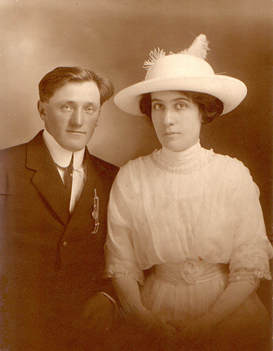
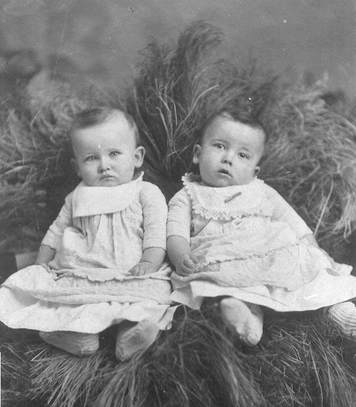
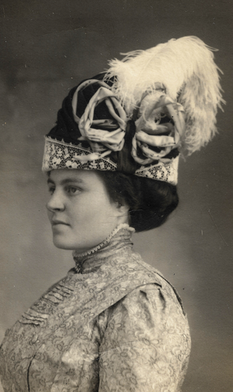
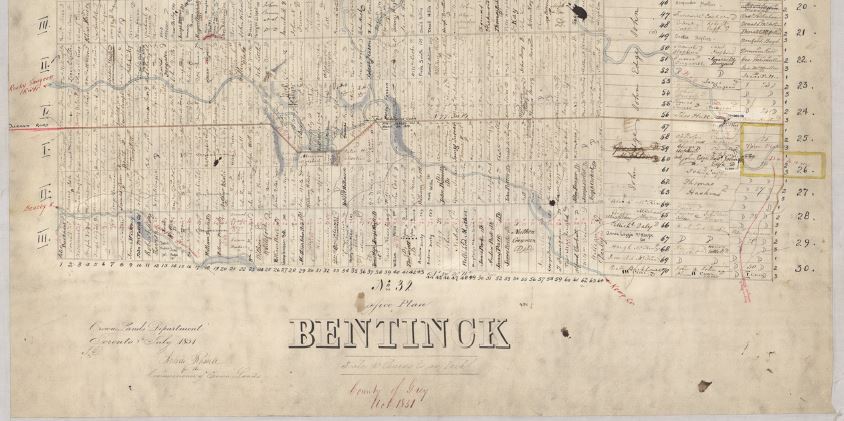
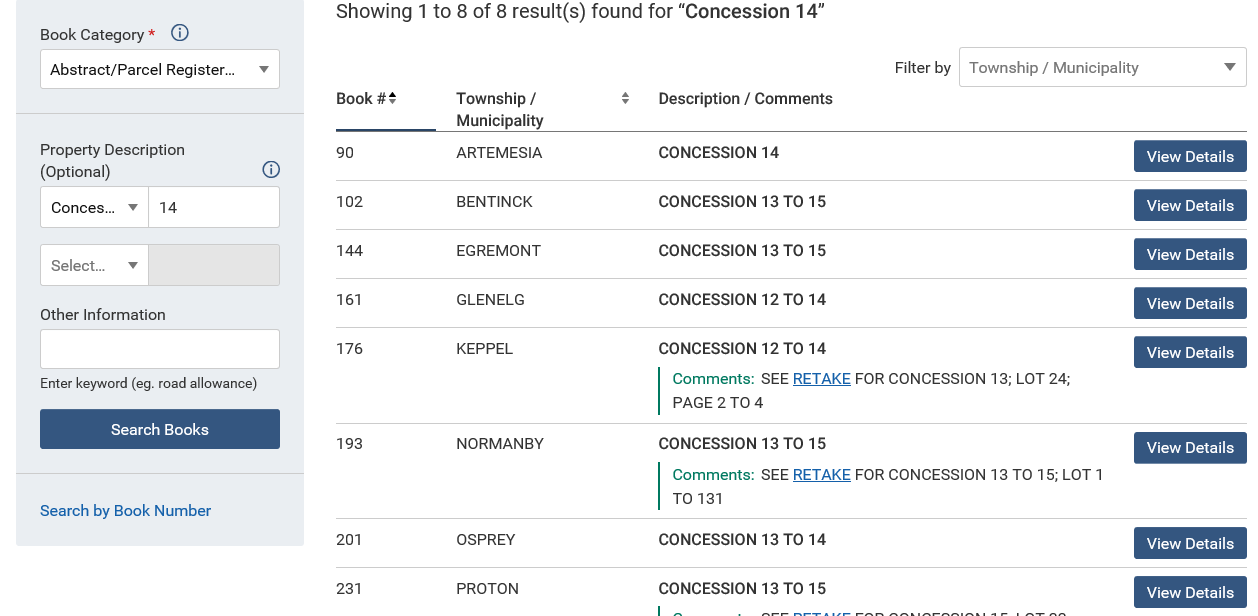
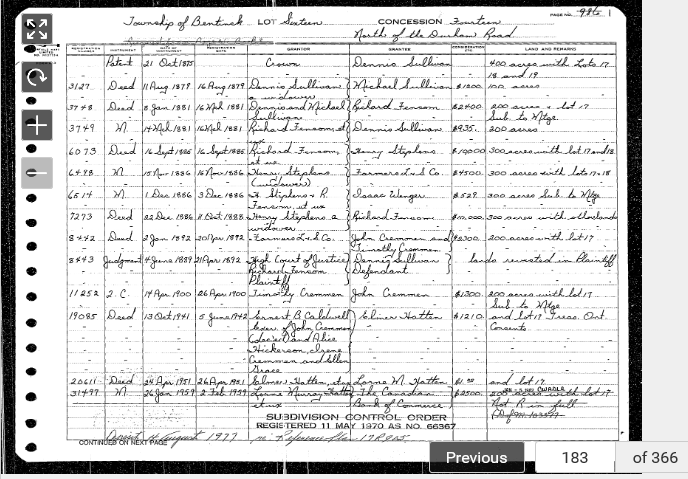
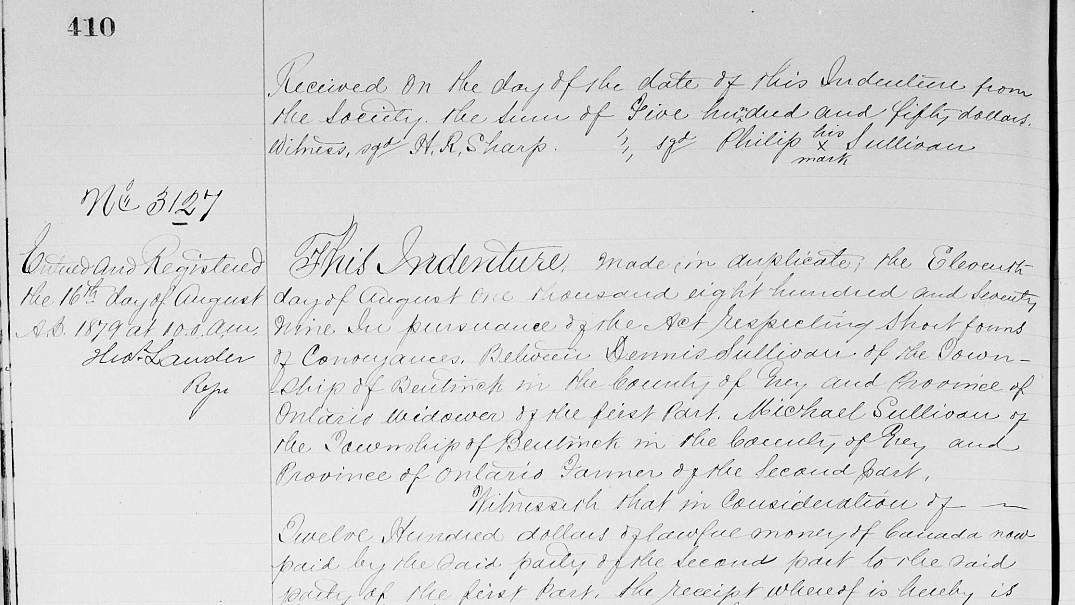
 RSS Feed
RSS Feed